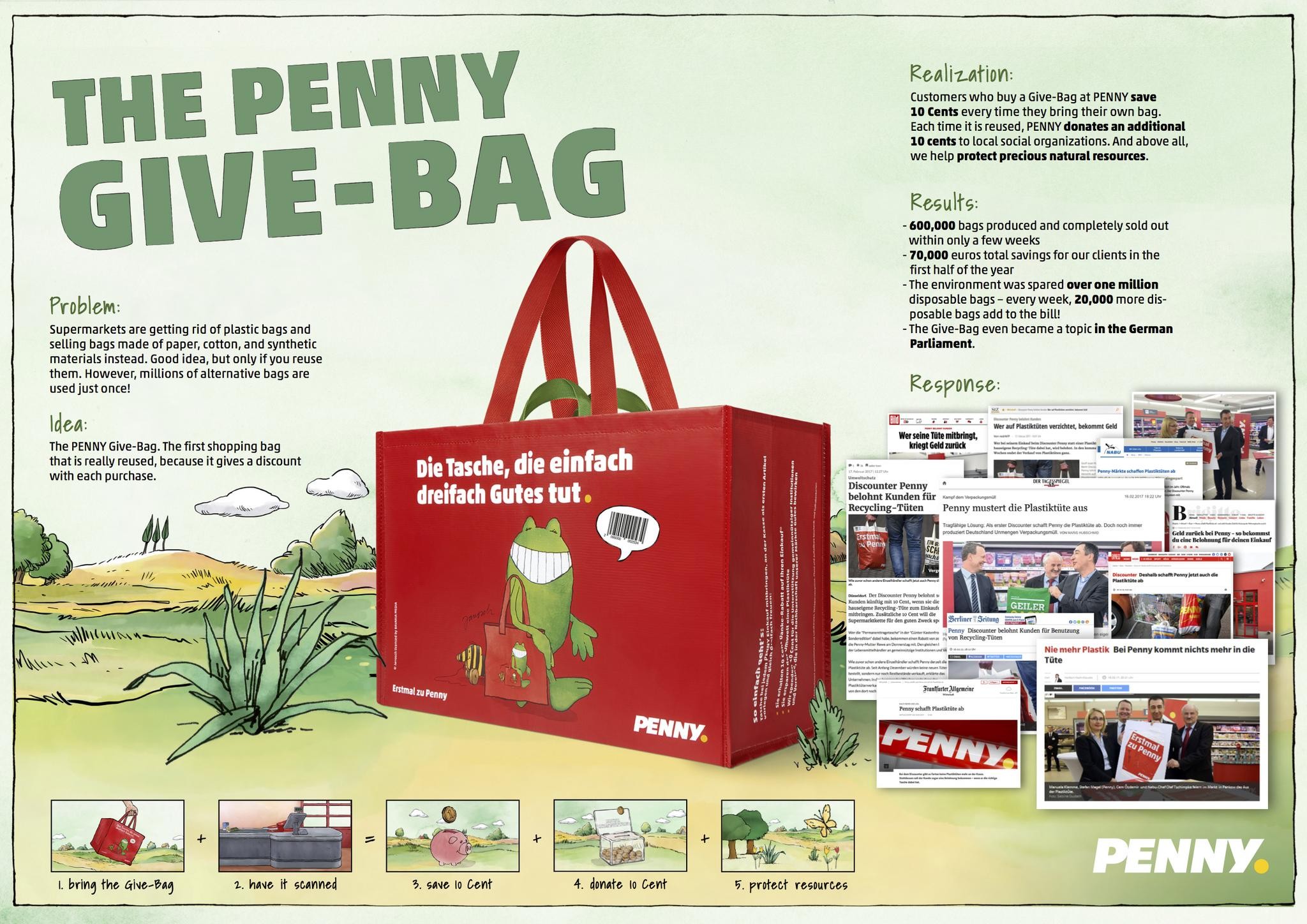Cannes Lions
True Costs
SERVICEPLAN, Munich / PENNY / 2024

Overview
Entries
Credits
Overview
Background
Supermarkets sell groceries at prices making them competitive with other brands and being affordable to customers. However, those prices only contain costs for food production, not for the effects the production itself has on the environment. If we wanted to take them into account, we would have to pay additional costs for the compensation of climate gases, soil and water contamination, health hazards of producers, and others. When these costs are included in the selling price you call them the true costs of products. As it needs retail, customers, producers, and politics equally to find a common solution for the issue, PENNY did an experiment together with the Nuremberg Tech and the University of Greifswald: they wanted to both find out what people would pay for mother nature, and to create a platform for all parties to talk to each other.
Idea
Supermarkets try to keep and win customers with low prices, special offers, and promotions, attracting them with the “best price”. This price, however, only helps people supposedly to save money as we all have to pay the price for its effects on our nature. For this reason, German discounter PENNY cooperated with the Nuremberg Tech and the University of Greifswald and introduced the true costs of nine products – being the first supermarket to raise its prices up to 94 % for the environment. Reaching people in every store all over Germany, the experiment was about raising awareness in society and politics. At the same time, customers were given the opportunity to choose products for the environment, making a decision with every single purchase. Thus, PENNY demonstrated that the best price for us is not the best price for mother nature and that we are paying for it, nevertheless.
Strategy
As the climate crisis is a global topic concerning everyone, the experiment was addressed to customers, retail, producers, and politics equally. Only together a change can be made, but it needs a platform for all parties to have a conversation about it. Addressing all demographic groups at the same place, PENNY used its reach to spark this conversation by selling only nine products for one week, finding out about the willingness of customers to pay more for a better environment and make politics and retail rethink their production models. The campaign and its background were only communicated to the customers at the point of sale, in the PENNY leaflet, and on a website where people could find the information relevant to the experiment. Thus, PENNY set the basis for informed decisions and the conversation about this delicate topic.
Execution
For years, PENNY takes action for more social and ecological responsibility. For this approach, they cooperated with the Nuremberg Tech and the University of Greifswald to scientifically calculate the effects on nature. For one week, the discount supermarket sold nine selected products at their true costs in all of their over 2,000 stores in Germany. The campaign and its background were communicated to the customers at the point of sale, in the PENNY leaflet, and on a website where people could find the information relevant to the experiment. Furthermore, the additional money earned with the true cost prices was completely donated to a project helping farmers to make their production more environment friendly.
Outcome
By selling nine products for one week at costs beneficial to nature, PENNY divided the nation. The discounter expected to lose customers, but it was important to spark a conversation about the topic. While some felt educated, many supported the idea behind. The campaign was all over Germany – on social media, print, and TV. It even made it to the national news and the international press: more than 1,200 reports, TikTok trend number one, and over 550 million contacts reached. Therefore, PENNY created a platform for politicians and retail to talk to each other and make a change like many customers did already. An accompanying study showed that over 50 % of the participants had an increased perception and awareness of products’ ecological effects. So many people paid the extra costs that an additional 370,000 € were raised. With this money, PENNY supported farmers to produce more climate friendly.
Similar Campaigns
12 items





